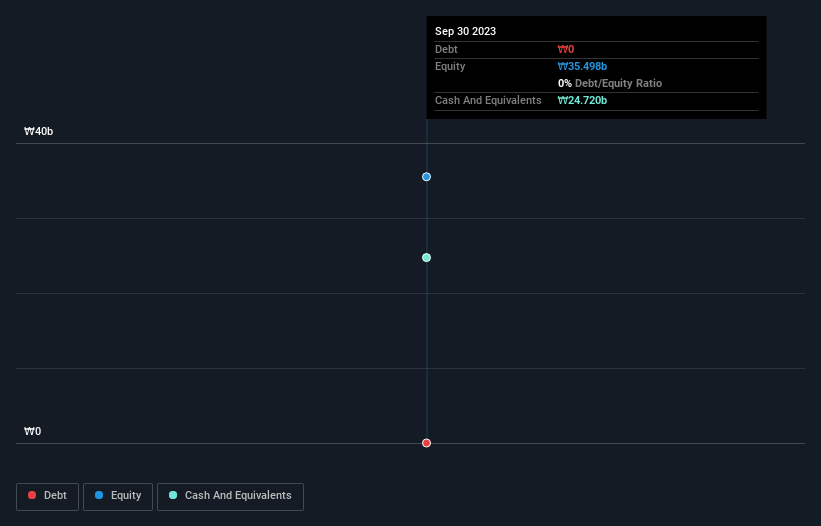- South Korea
- /
- Entertainment
- /
- KOSDAQ:A432430
We're Hopeful That YLAB (KOSDAQ:432430) Will Use Its Cash Wisely
There's no doubt that money can be made by owning shares of unprofitable businesses. For example, although software-as-a-service business Salesforce.com lost money for years while it grew recurring revenue, if you held shares since 2005, you'd have done very well indeed. But while history lauds those rare successes, those that fail are often forgotten; who remembers Pets.com?
So, the natural question for YLAB (KOSDAQ:432430) shareholders is whether they should be concerned by its rate of cash burn. In this article, we define cash burn as its annual (negative) free cash flow, which is the amount of money a company spends each year to fund its growth. First, we'll determine its cash runway by comparing its cash burn with its cash reserves.
Check out our latest analysis for YLAB
How Long Is YLAB's Cash Runway?
A company's cash runway is calculated by dividing its cash hoard by its cash burn. In September 2023, YLAB had ₩25b in cash, and was debt-free. Importantly, its cash burn was ₩12b over the trailing twelve months. That means it had a cash runway of about 2.1 years as of September 2023. That's decent, giving the company a couple years to develop its business. Depicted below, you can see how its cash holdings have changed over time.

Is YLAB's Revenue Growing?
Since we don't have data on YLAB's cash burn last year, we'll focus on its revenue as measure of growth. As it happens, operating revenue has been pretty flat over the last year. While the past is always worth studying, it is the future that matters most of all. For that reason, it makes a lot of sense to take a look at our analyst forecasts for the company.
How Easily Can YLAB Raise Cash?
Notwithstanding YLAB's revenue growth, it is still important to consider how it could raise more money, if it needs to. Companies can raise capital through either debt or equity. Many companies end up issuing new shares to fund future growth. We can compare a company's cash burn to its market capitalisation to get a sense for how many new shares a company would have to issue to fund one year's operations.
YLAB's cash burn of ₩12b is about 6.2% of its ₩192b market capitalisation. Given that is a rather small percentage, it would probably be really easy for the company to fund another year's growth by issuing some new shares to investors, or even by taking out a loan.
So, Should We Worry About YLAB's Cash Burn?
Based on the factors mentioned in this article, we think its cash burn situation warrants some attention from shareholders, but we don't think they should be worried. On another note, YLAB has 2 warning signs (and 1 which is potentially serious) we think you should know about.
Of course, you might find a fantastic investment by looking elsewhere. So take a peek at this free list of companies insiders are buying, and this list of stocks growth stocks (according to analyst forecasts)
New: Manage All Your Stock Portfolios in One Place
We've created the ultimate portfolio companion for stock investors, and it's free.
• Connect an unlimited number of Portfolios and see your total in one currency
• Be alerted to new Warning Signs or Risks via email or mobile
• Track the Fair Value of your stocks
Have feedback on this article? Concerned about the content? Get in touch with us directly. Alternatively, email editorial-team (at) simplywallst.com.
This article by Simply Wall St is general in nature. We provide commentary based on historical data and analyst forecasts only using an unbiased methodology and our articles are not intended to be financial advice. It does not constitute a recommendation to buy or sell any stock, and does not take account of your objectives, or your financial situation. We aim to bring you long-term focused analysis driven by fundamental data. Note that our analysis may not factor in the latest price-sensitive company announcements or qualitative material. Simply Wall St has no position in any stocks mentioned.
About KOSDAQ:A432430
YLAB
Engages in the planning, development, production, and publishing of video contents based on webtoons and webnovel IPs.
Flawless balance sheet with very low risk.
Market Insights
Community Narratives




